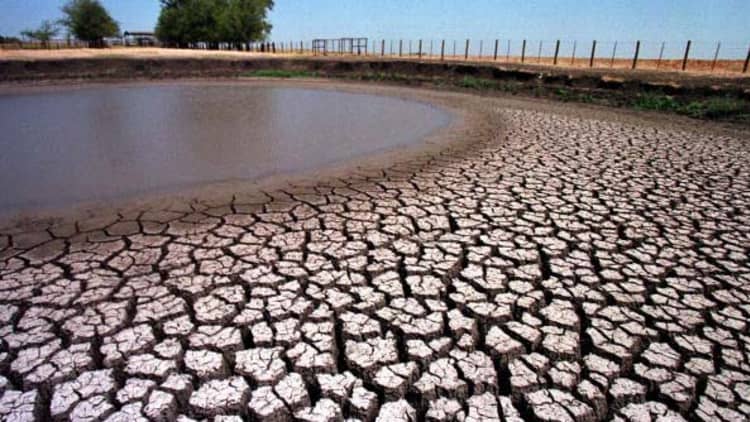The World Economic Forum's (WEF) flagship annual report surveyed 750 experts to identify the most significant global concerns. Here are the top five:
Economy: Growth and reform
Rising income and economic disparity ranked first among experts as the most critical risk which could shape global developments over the next decade.
A prolonged period of historically low interest rates across the world is one key reason which has heightened economic concerns. Previously trusted financial mechanisms which underpinned healthy economic activity were found to be in urgent need of recalculation. Bank of England Chief Economist Andrew Haldane described the financial profession as "in some degree of crisis" last Thursday.
China's economic slowdown remains a prominent risk, according to the WEF report. In 2016, the yuan posted its biggest yearly loss against the dollar in over two decades, making it the worst performing major Asian currency for the calendar year.
The report concluded the path back to robust rates of economic growth was increasingly difficult to foresee.
Dani Rodrik, Harvard economist, proposed a theory which described "the globalization trilemma" in which among democracy, national sovereignty and global economic integration, only two could be simultaneously compatible. Recent political events in Europe and the U.S. suggest democracy and national sovereignty would be the priorities moving forwards, according to the report.
Society: Rebuilding communities
Brexit, President-elect Donald Trump's victory and the rise of populism are all geopolitical risks, according to respondents to the Global Risks Perception survey (GRPS).
Issues surrounding identity and culture were found to be at the root of the pivotal political outcomes of 2016.
Perceived political outsiders outperformed the establishment by being able to better engage with traditional voters on concerns regarding sovereignty and national pride, according to the survey's findings.
Unusually, older voters were found to be the driving force of political movements over the past 12 months and so, with populations ageing, the report suggested that the pendulum is unlikely to swing back to the younger generation for some time.
Technology: Managing disruption
Technological developments were found to be a more sound explanation for industrial decline and deteriorating labor-market prospects than globalization, according to the latest annual WEF report.
Drastic change in technology was said to have accelerated problems in geopolitical stability, job security and even social relationships.
The so-called Fourth Industrial Revolution (FIR) has created an unprecedented amount of new global risks as well as exacerbating existing problems, according to the report. Artificial intelligence (AI) and robotics were found to pose the greatest danger over the coming decade.
"Artificial intelligence will enable us to address some of the great issues of our age, such as climate change and population growth, much more effectively," John Drzik, the president of global risks and specialties at Marsh, which collaborated on the report, said in a note.
"However, increased reliance on AI will dramatically exacerbate existing risks, such as cyber, making the development of mitigation measures just as crucial," he added.
Geopolitics: Strengthening cooperation
GRPS experts noted an alarming step back from international commitments in 2016.
The landmark Paris Climate Change pact had come under fire throughout Donald Trump's campaign for presidency and he has vowed to pull out of the deal following his inauguration on January 20. Trump has previously described climate change as a hoax.
President Barrack Obama described the adoption of clean energy in the U.S. as "irreversible" in a Science journal article on Monday. The published opinion piece put pressure on his successor, Donald Trump, not to back away from the Paris Climate Change agreement.
However, the departure of major stakeholders from the Trans-Pacific Partnership and Trans-Atlantic Trade and Investment Partnership were also geopolitically significant, GRPS respondents said. Moreover, an absence of a unified international accord to support the United Nations (UN) handicapped efforts to provide humanitarian relief and protect civilians in Syria, according to the report.
"Urgent action is needed among leaders to identify ways to overcome political or ideological differences and work together to solve critical challenges," Margareta Drzeniek-Hanouz, head of global competitiveness and risks at WEF, said in a note.
"The momentum of 2016 towards addressing climate change shows this is possible, and offers hope that collective action at the international level aimed at resetting other risks could also be achieved," she added.

Environment: Accelerating action
Environmental risks have dominated the WEF's Global Risks Report for the past seven years and the group's 2017 edition has proved to be no exception.
Extreme weather events, climate change and water crises have consistently featured among the top-ranked global risks over the past decade and the experts surveyed urged for action to be accelerated in order to limit any environmental risks.
The Paris Agreement, which has now been ratified by more than 110 countries, as well as empirical evidence that a global transition to a low-carbon economy is underway were highlighted as reasons to be hopeful yet the report stressed the pace of change is not quick enough.
The year 2016 is poised to be the warmest on record according to the World Meteorological Organization and the UN's 2016 Emissions Gap Report projected that the world would need to eradicate emissions altogether by the year 2100 in order to avoid dangerous climate change.
Multidimensional cooperation would be required to aid governments and international agencies in order to respond adequately to structural environmental risks, according to the report. Though in the current political climate, adopting an internationally connected cooperation would be challenging, the WEF report concluded it would be necessary.






